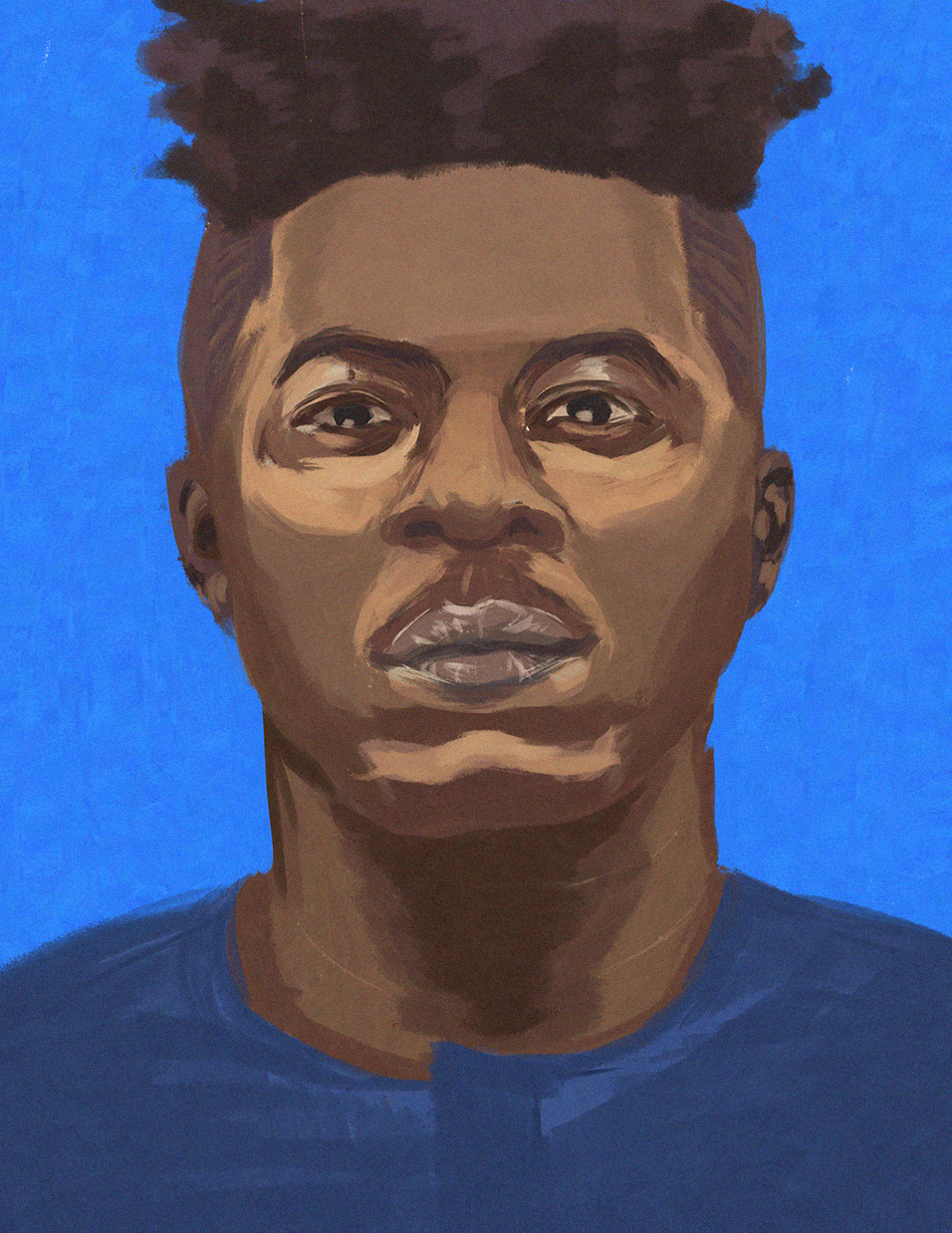Concerts have the ability to overwhelm you with feelings, but sometimes they can be too complicated to express. On the night of Red Bull’s Sound Select concert at Thalia Hall, the emotions I left with were distinct and articulate, because the performers had brought them out explicitly through each set. The national concert series made a stop at Thalia Hall for a hometown special headlined by local rapper and jazz lover Mick Jenkins and his fellow Chicago emcees Smino and Kweku Collins. Though diverse artists, all three rappers are transplants to Chicago, and through their music, they all emphasized the importance of love and togetherness. Seeing as how Chicago couldn’t even make it through October before the weather called for multiple layers, togetherness was decidedly important even before the show, in fending off low temperatures while waiting in line.
Chicago-based DJ Boi Jeanius provided the preliminary attractions, with a concoction of soul classics and contemporary hype tracks that laid the groundwork for the night’s musical diversity, as well as its local emphasis. Boi Jeanius expressed the importance of the concert’s location by saying he only had to walk a few blocks to come do what he loves. His ability to get everyone singing and jumping was the perfect segue to the magnetism of Kweku Collins.
Kweku’s youth is apparent in his charisma. It’s unique how his juvenile vibe enhances his work: his self-produced music comprises spaced-out ballad beats layered under eccentric wordplay—the epitome of millennial.
Kweku doesn’t hide the fact the he’s relatively new to music, but that’s what makes what he does, and the way he does it, so fun. He seemed incapable of standing still as he ceaselessly traversed the stage as if it were his playground. I couldn’t help but feel a sense of bliss as he played with poetics in a subtle but effective reggae-esque patois. Despite being born and raised in Evanston, Kweku has figured out how to fit into Chicago’s music scene—precisely by standing out.
Serving once again as the sonic shift between sets, Boi Jeanius returned to helm his turntables, playing through Chicago hip-hop classics from the likes of Kanye and Common. He then time-jumped with “No Problem,” praising Chance and all the pioneering work he’s done for Chicago’s modern music scene.
Many credit Chance with creating a platform that allows young Chicago artists like Zero Fatigue to find their footing. Regardless, modern music in the city has evolved to the point where young artists can reach prominence on their own merits, and there’s no better example of that than Zero Fatigue. Wordsmith Smino and eclectic producer Monte Booker represented the group without vocalist Ravyn Lenae and rapper Jay2AintShit, but the group’s aggregate talent was nonetheless present during the night’s penultimate set. If Kweku represented youthfulness that evening, Smino and Booker surely portrayed the harmony of togetherness. Much of Zero Fatigue’s success is a result of the evident camaraderie between the members: Smino led the audience in a chant of his group’s name between songs and expressed boundless love for his hometown of St. Louis. Smino’s talent was present in his timbre and flow, which paired swimmingly with Monte’s naturalistic yet cosmic beats.
Finally Mick Jenkins, the man of the hour, emerged from a blast of smoke, dressed in an overcoat, and broke without warning into the first song that put him on the map, “Jazz.” Like Smino with his chant of “Zero Fatigue,” Mick led the crowd in proclamations of his original tagline, “drink more water,” and his more recent edict, “spread love.” Repetition turned these simple phrases into mantras.
As mantras, they invite more thought—for Mick, there’s always been more to water than those three words. Mick shouldn’t be taken at face value, and the symbolism in his craft is nothing short of thematic. With his latest album, The Healing Component, his message has only evolved. To drink water was to be true to one’s self, and with his evolution, that self-introspection from his Water[s] mixtape has grown outward in the form of love. Throughout his set, Mick assumed the role of a preacher, and we were all attendees of his sermon: in times as desperate as ours, Mick’s frequent monologues about the importance of truth and love felt needed.
Mick’s performance was the apex of all the love that filled the room. As the oldest of the bunch, there was a bright sense of sophistication to his idea of love. To bring things full circle, Mick condensed togetherness to its purest during his collaboration with Hurt Everybody, “Social Network.” At the drop, the crowd lit up to the repetitive hook of “gang, gang, gang, gang,” a fitting conclusion to a night out with friends. The night’s experience, part of the aptly titled Quest for Love tour, succeeded in finding exactly what it set out to.

